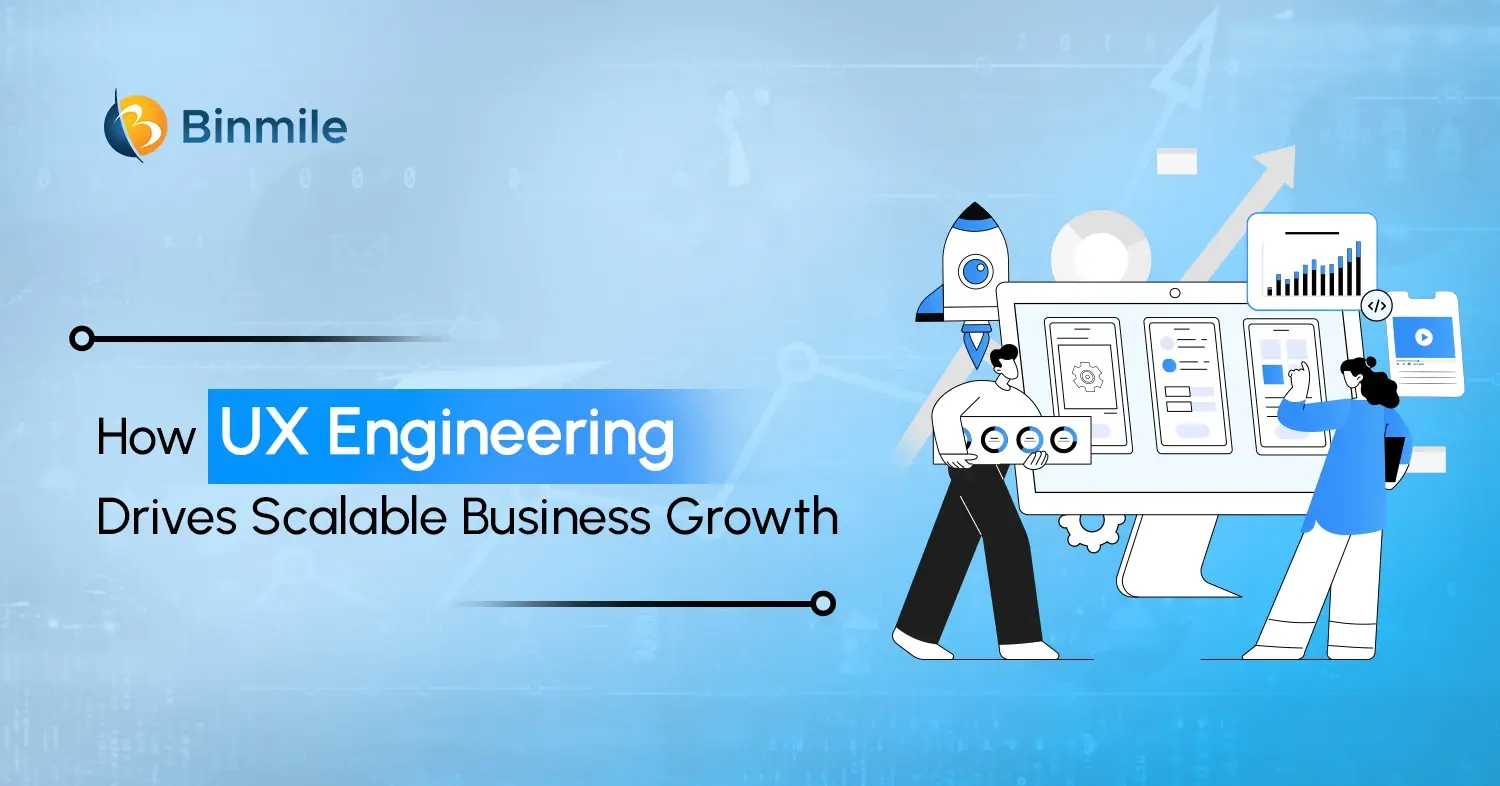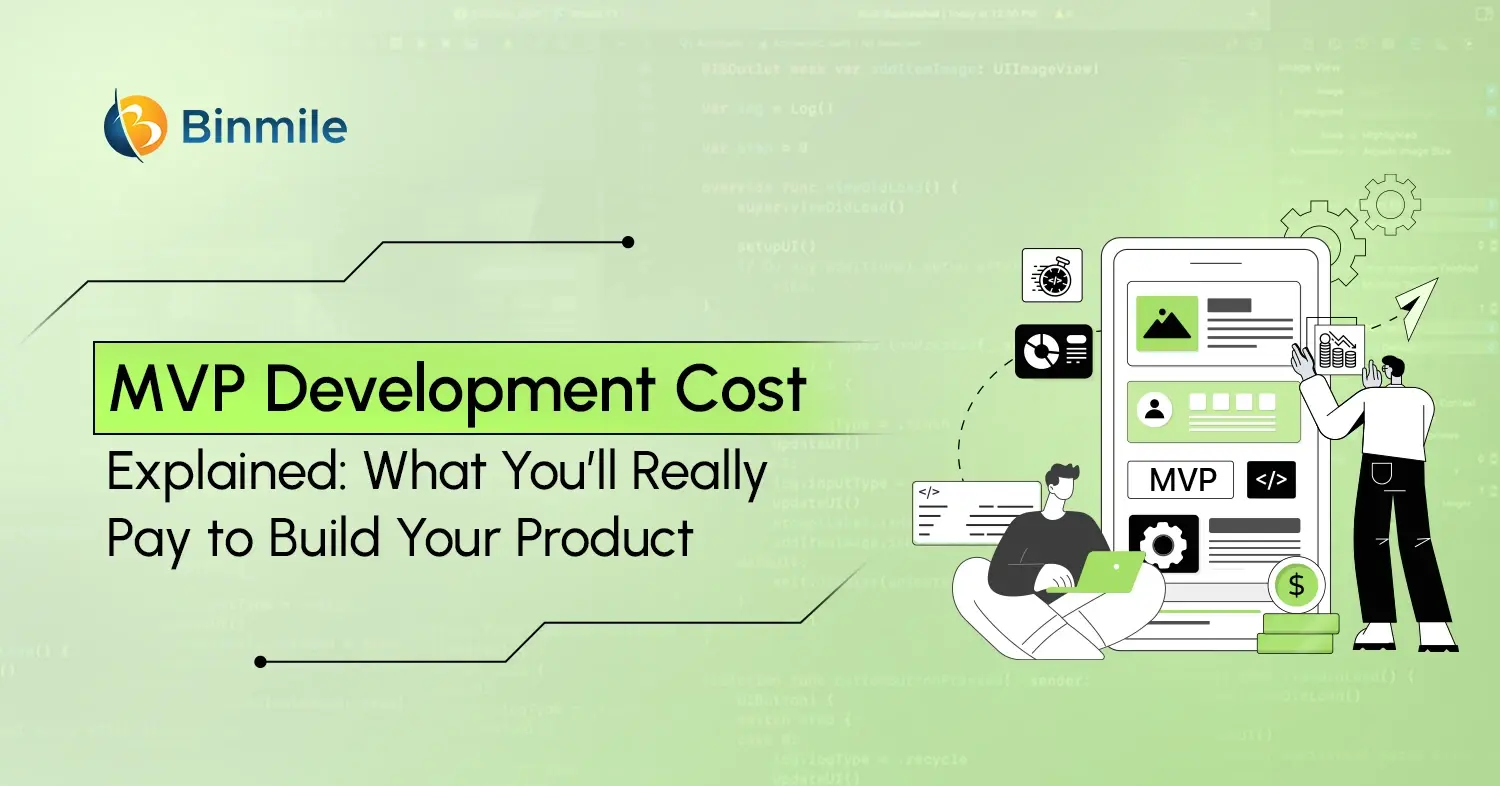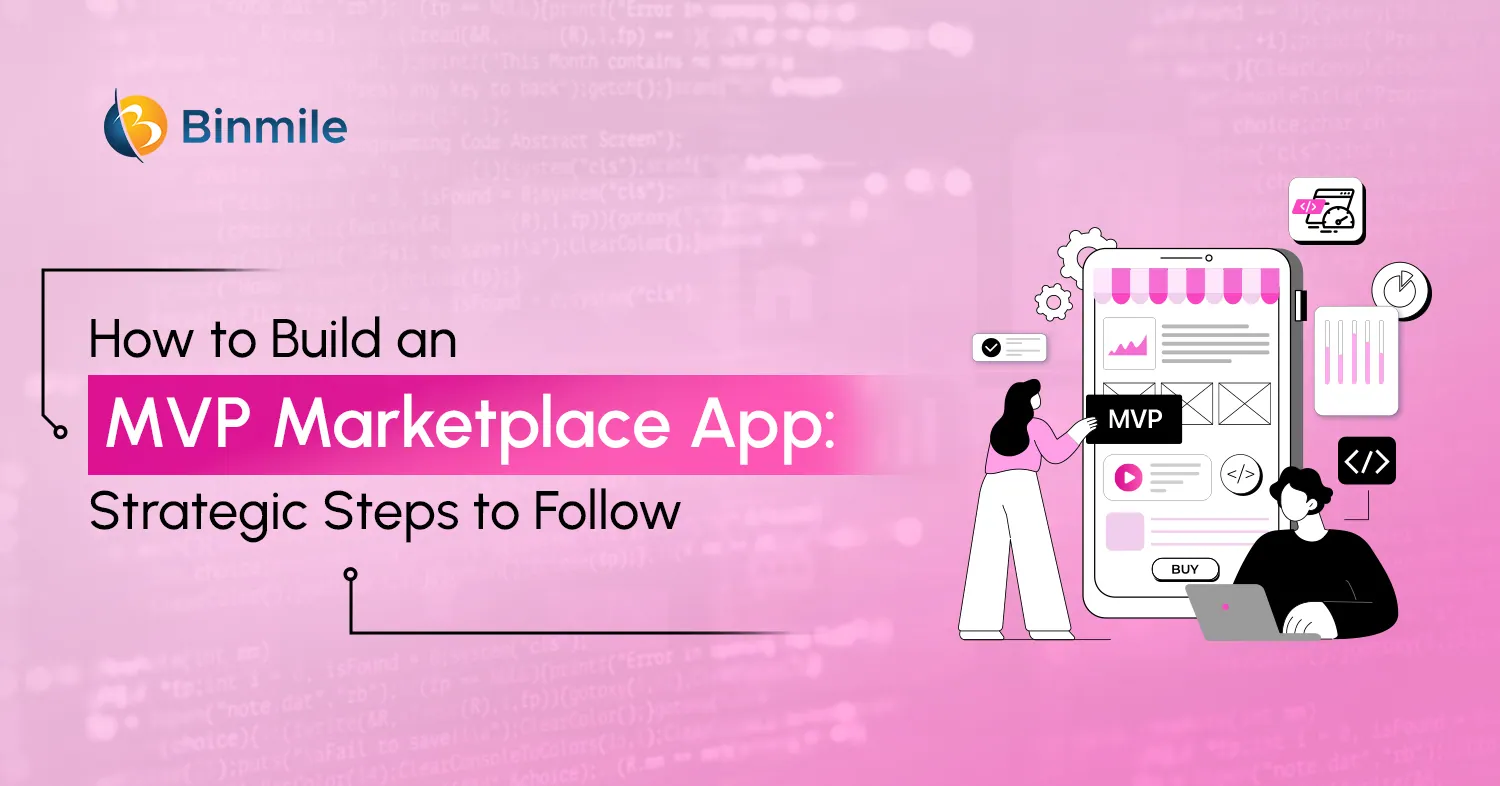Building a Minimum Viable Product (MVP) enables businesses to validate an app idea and demonstrate its potential success in the market without a significant investment of resources or time. This becomes even more essential for startups or SMEs seeking to enter a competitive market. However, building an MVP project is more than just coding and adding some graphics. MVP development services consist of all the key elements of the development process, laying the groundwork for a successful business. Therefore, to effectively deliver a digital product that meets your users’ expectations and captures investors’ interest, partnering with the right MVP partner becomes essential.
The right MVP development agency comes in with valuable insights and hands-on experience from similar projects. Therefore, they can help you build safely, cost-effectively and swiftly. But how do you choose the perfect app development agency with so many options out there? In this blog, we’ll share a few key considerations to help you make the right choice. In addition, we’ll also share a list of mistakes you must avoid before finding the perfect one for your projects.
What is MVP Development Services: Key Benefits for Entrepreneurs and Innovators
MVP, or Minimum Viable Product, refers to building an MVP project, which is the smallest version of your solution that solves a real problem for real users. One thing that needs clarification is that it is not an internal tool or mock-up. It is deployed, used, and assessed under real-world conditions.
One of the significant benefits of MVP development is that it allows you to test core features before committing complete resources, thus minimizing risk while maximizing learning. Other benefits it offers are:
Advantages of MVP Development Services
- Test core features early to confirm user interest before full-scale investment.
- Helps you avoid wasting time and money on unnecessary features during the initial stages of development.
- Collect user feedback quickly and pivot product direction based on real data.
- Showcase traction and clarity of vision with a working prototype.
- Launch early, engage users, and build brand presence sooner.
How to Choose the Right MVP Development Partner: 10 Factors to Know
Selecting an MVP development services partner isn’t just about technical capability. It’s about choosing a team that can work intelligently within constraints, adapt quickly to ambiguity, and stay focused on what actually moves the product forward. So, let’s explore the factors you need to consider before you hire developers for your projects. This is to ensure that your product meets market needs, attracts users, and sets the stage for future growth.

1. Understands MVP Strategy
A Minimum Viable Product isn’t a lighter version of your end product. It’s a structured experiment within your broader product development strategy. The objective is to validate a core assumption using the least amount of time, code, and complexity. If a team begins by proposing a full suite of features, they’re missing the point. Look for those who can identify what not to build as clearly as what to include.
2. Strong Product Mindset
You want a partner who sees the bigger picture. That means understanding your user, the market context, and what success looks like in the short term, not just how to implement a given feature. A team that moves from specification to code without questioning business goals is unlikely to add strategic value. The best ones will interrogate your assumptions, not just your backlog.
3. Adapt to Startup Constraints
The early-stage software development process unfolds at a different pace as priorities shift, timelines shrink, and resources are limited. Teams that are used to building enterprise platforms often struggle to navigate this level of ambiguity. A qualified MVP partner should have demonstrable experience working with lean product teams, where trade-offs and speed aren’t occasional; they’re built into the process.
4. Interrogate Project Scope
A reliable MVP partner doesn’t default to an agreement; instead, they offer perspective. If a proposed feature adds complexity without supporting the MVP’s core objective, they’ll say so. That kind of resistance isn’t obstruction; it’s product stewardship. You’re looking for a team that protects the integrity of the build, not just its size.
5. Clear, Structured Communication
Startups move quickly, often with shifting priorities. In that environment, communication needs to be frequent, direct, and easy to act on. Strong partners don’t rely on you to chase updates. They establish reporting rhythms, flag blockers early and make decision-making easier through well-framed context. You’re not just going for outsourced product development, you’re outsourcing part of your product thinking. Therefore, communication quality should reflect that.
6. Usability as a Priority
An MVP doesn’t need visual polish, but it does need to function clearly enough for users to engage and provide feedback. If workflows are confusing or interactions feel clumsy, the data you gather becomes unreliable. A thoughtful partner will take this into account. They’ll prioritize intuitive flows, even when working with wireframes or low-fidelity design.
7. Context-Driven Tech Decision
No tech stack is perfect; each comes with strengths and compromises. What matters is whether those trade-offs align with your goals. Your MVP development agency should be able to explain their choices in practical terms: why a particular MVP development framework suits your time-to-market goals or how the backend can scale without overengineering the MVP. It’s not about choosing the most modern tools. It’s about choosing what’s appropriate for the product’s current stage, with a clear path to evolve if needed.
8. Defined Post-Launch Support
Once the MVP goes live, it will surface bugs, generate new insights, and often shift direction. It’s essential to clarify in your agreement what happens after launch, including whether the same team remains available for iterations and under what terms. A good MVP partner will offer continuity without locking you into long-term retainer models that don’t suit the unpredictability of early-stage businesses.
9. Flexible Engagement Models
Startups don’t always follow linear timelines in their development processes; at some phases, rapid development is required, while others necessitate slower iteration. Outsourcing engagement models should reflect that: whether that means fixed-scope sprints, time-based billing, or project-based contracts, the structure must allow for growth, change, and pause without incurring financial strain. Remember, flexibility isn’t just a pricing detail; it’s a sign the MVP development agency understands how startups work.
10. Fosters Team Alignment
You must consider how the team works, not just what they deliver. Do they work independently without losing alignment? Do they adapt when priorities shift mid-week? Do they treat the product like something worth building carefully, even under time pressure? These details rarely appear in proposals, but they significantly shape your day-to-day experience. A solid MVP development solution understands the early-stage culture and operates effectively within its uncertainties.
Also Read: How to Build MVP Marketplace App
5 MVP Partner Selection Mistakes You Can’t Afford to Overlook
Here are five mistakes to avoid before choosing an MVP development services partner, ensuring your project is completed efficiently and aligns with your long-term goals:

- Prioritizing Speed Over Clarity: Rushing to build at high speed without matching scope priority and user output sequencing can result in costly rework. Spend some time clarifying how success should appear in the initial stage of digital product development.
- Team Vetting Overlooked: There’s really no point in interacting with top talent that you would hardly work with or see in the future. You must insist on meeting the people who will be involved in developing your MVP, including developers or leads.
- IP Rights Unclear: Some teams withhold source code, access to reports, or deployment rights until late in the software development process. Make sure that you clearly outline the ownership and delivery expectations from the outset.
- QA Testing Ignored: Treating QA testing services or quality measurement as an afterthought may backfire post-launch. Ensure that the QA process, even if minimal, is there to produce a high-quality digital product.
- Portfolio-Led Selection: Even an impressive case study or portfolio may not necessarily represent how they work under pressure or tight deadlines as a team. Questions to ask: How do you handle scope changes, meeting deadlines, or a lack of response when building?
Closing Remarks on MVP Development Partner
Selecting the right MVP development partner is crucial to turning your idea into a successful, market-ready product. After all, with the expert MVP development services, you can confidently take the first step towards turning your concept into a scalable, high-performance solution that drives success. However, the decision on how to find the right MVP development agency depends on your project requirements. Though one thing remains constant: a leading MVP partner speeds up your journey, mitigates risks, and future-proofs your foundation without compromising quality.
Hopefully, this blog has given you a detailed understanding of how to find the right MVP development partner for your projects. In addition, we discussed a few costly mistakes you should avoid as you get ready to hire a prospective software product development company. Ultimately, remember, the right partnership sets your business on a path toward long-term impact, innovation, and measurable success.









